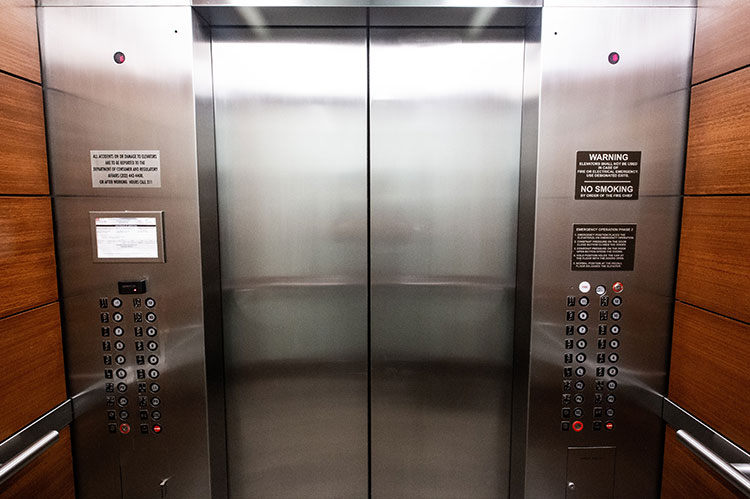
3 Elevator Maintenance Contract Guidelines to Follow
Elevator violations can be costly, as described in the blog, Correcting Department of Buildings OATH Violations, and why the investment in an elevator maintenance plan is a ‘no-brainer’ when considering the cost of elevator service disruption, unhappy tenants, and liability issues for Failure To Maintain the elevator.
The first item the contracted inspector of the NYC Department of Buildings (DOB) looks for is the name, address, and phone number of the building’s independent elevator maintenance firm, posted prominently where the DOB inspector can see it. Next is to see a maintenance log of repairs and maintenance performed by the building’s elevator maintenance firm. The most prevalent of the violations found by DOB inspection firms — Failure To Maintain a building device.
The peace of mind that comes from negotiating an elevator maintenance plan with a licensed elevator inspection firm that follows a schedule of routine maintenance procedures specific for the age and usage of the building elevator cannot be overstated, and is never overrated!
The following are three essential contract guidelines to understand when negotiating a maintenance contract:
Choosing the elevator maintenance plan type
Contracts are generally categorized as basic, partial, and full-service contracts. At Champion Elevator, contracts are classified as standard, maintenance plus, and full-service maintenance.
A basic maintenance plan
This plan usually consists of the inspection and lubrication of the moving parts of the elevator. However, any parts and labor for service calls, adjustments, and repair work required will be billed separately.
A partial maintenance plan
This plan usually includes routine inspection and preventative maintenance measures, such as inspection of non-major components, cleaning, lubrication, repair, and replacement of the parts covered in the agreement. Make sure the contract lists the components that are covered under this service plan.
A full-service maintenance
This plan includes preventative routine inspection, maintenance, adjustments, repairs needed, and documenting the equipment condition, which helps in knowing when to repair or replace parts before there is an elevator failure. Full-service contracts cover the cost of both parts and labor with some minor exclusions.
Negotiate Contract Duration
Know the duration of the elevator contract. Standard contracts are usually five-year terms with a clause that states any termination of contract requires a 90-day written notice. While shorter contract terms are possible, a maintenance agreement with a shorter duration can have a higher monthly premium payment or the owner risks having a company that will not invest properly in maintaining the job correctly.
Negotiate Contract Renewal
It is vital to understand what happens when a contract comes to the end of the agreement period. Many maintenance agreements include an auto-renew clause, sometimes called the evergreen clause, and can be found under the ‘terms’ section in the contract. An auto-renew clause allows the company and customer relationship to continue unabated without re-negotiating contract terms.
An auto-renew clause requires accurate tracking of the contract end date and knowing when and how to send a cancellation notice. The cancellation window is usually 90 days, no more than 120 days, before the end of the original contract period, and often will need to be done by certified written letter.
Contact the professionals of Champion Elevator who can provide detailed information to securing an elevator maintenance plan tailored specifically to the needs of your building’s elevators!